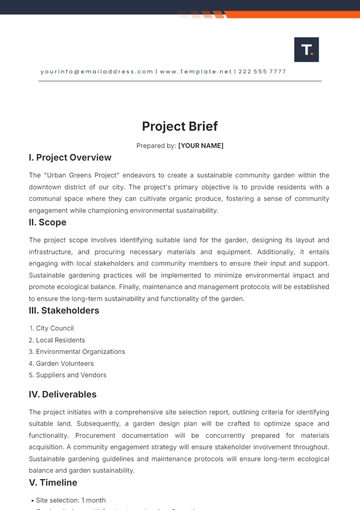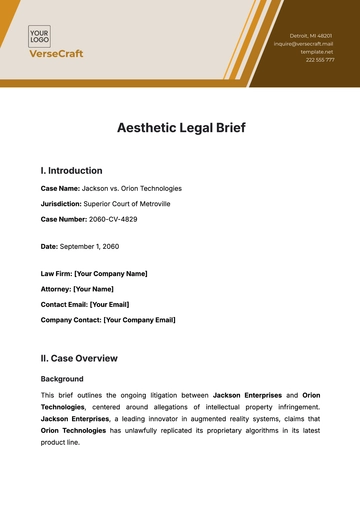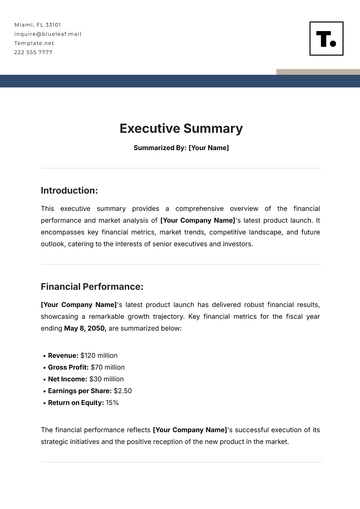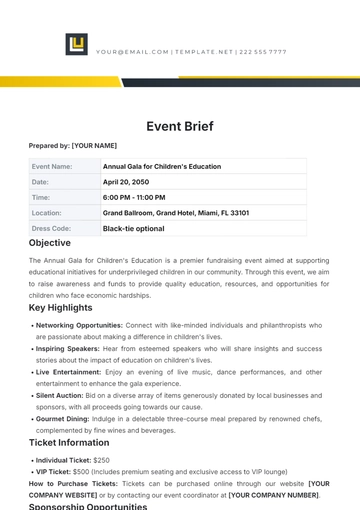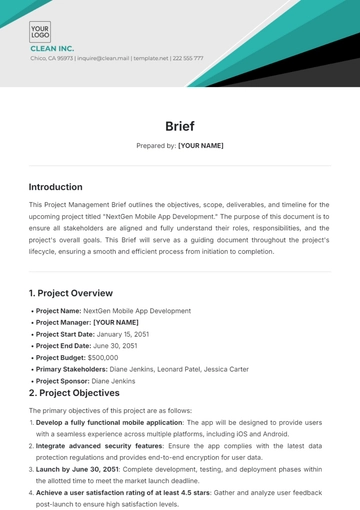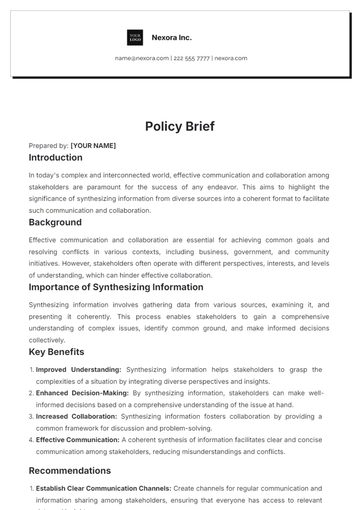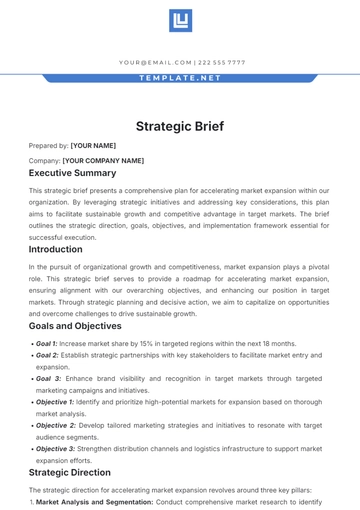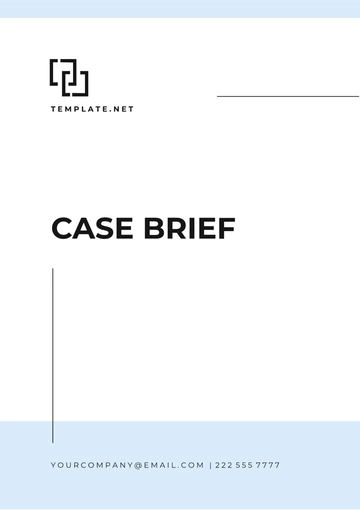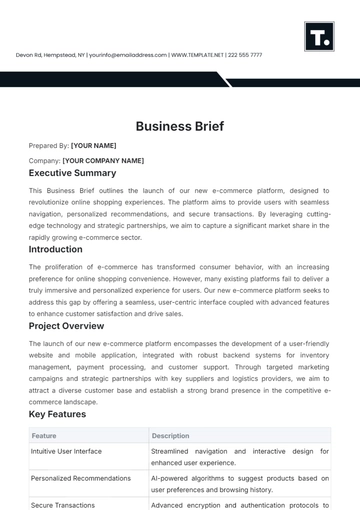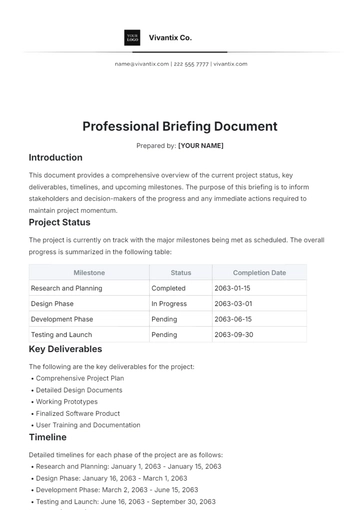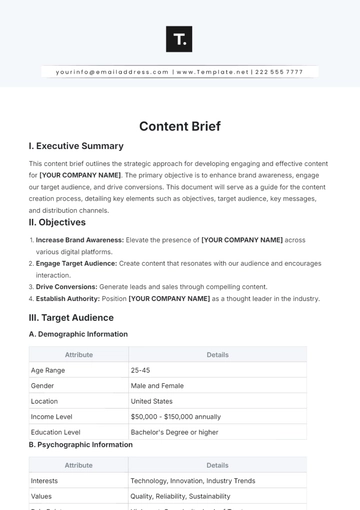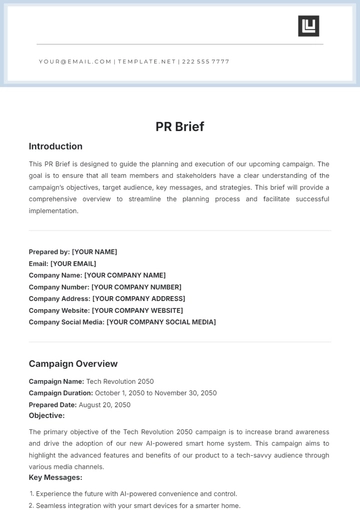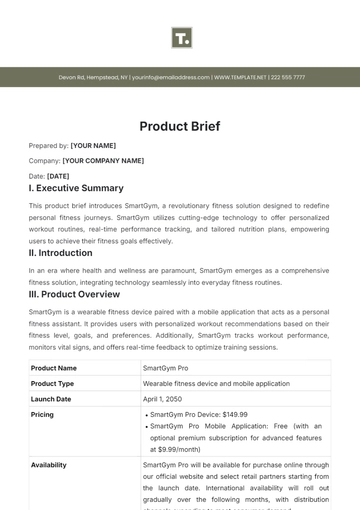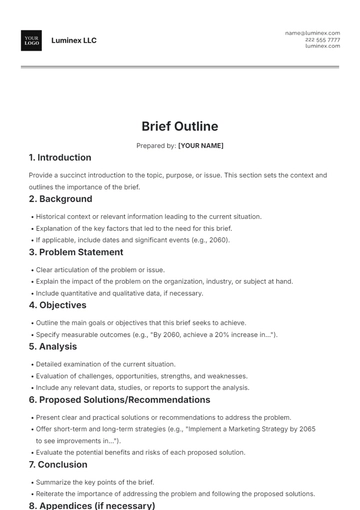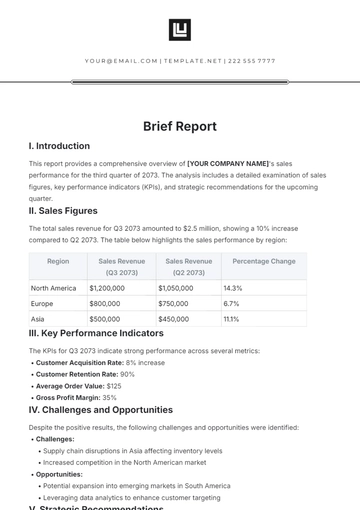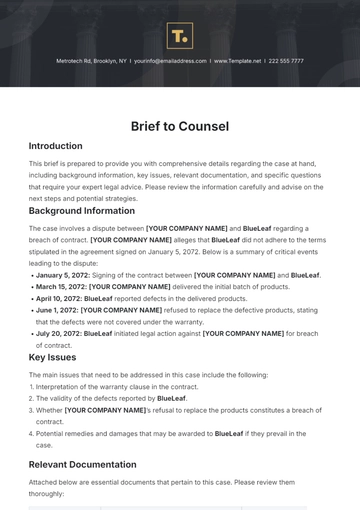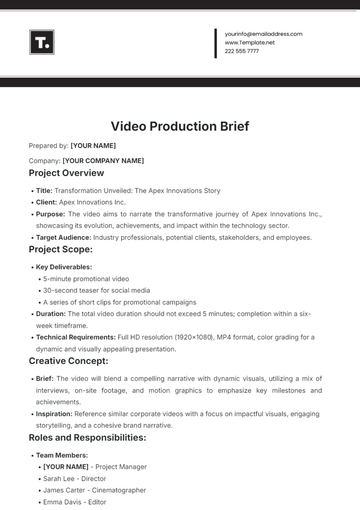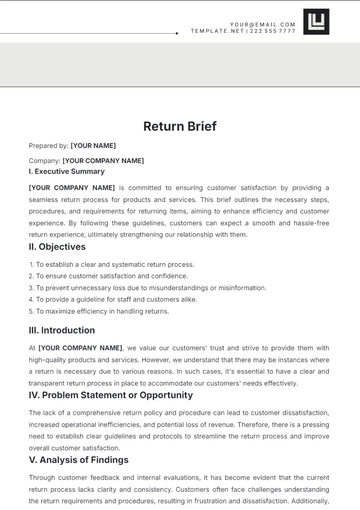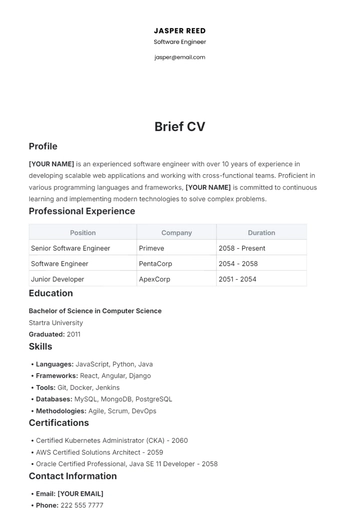Free Electronic Appellate Case Brief
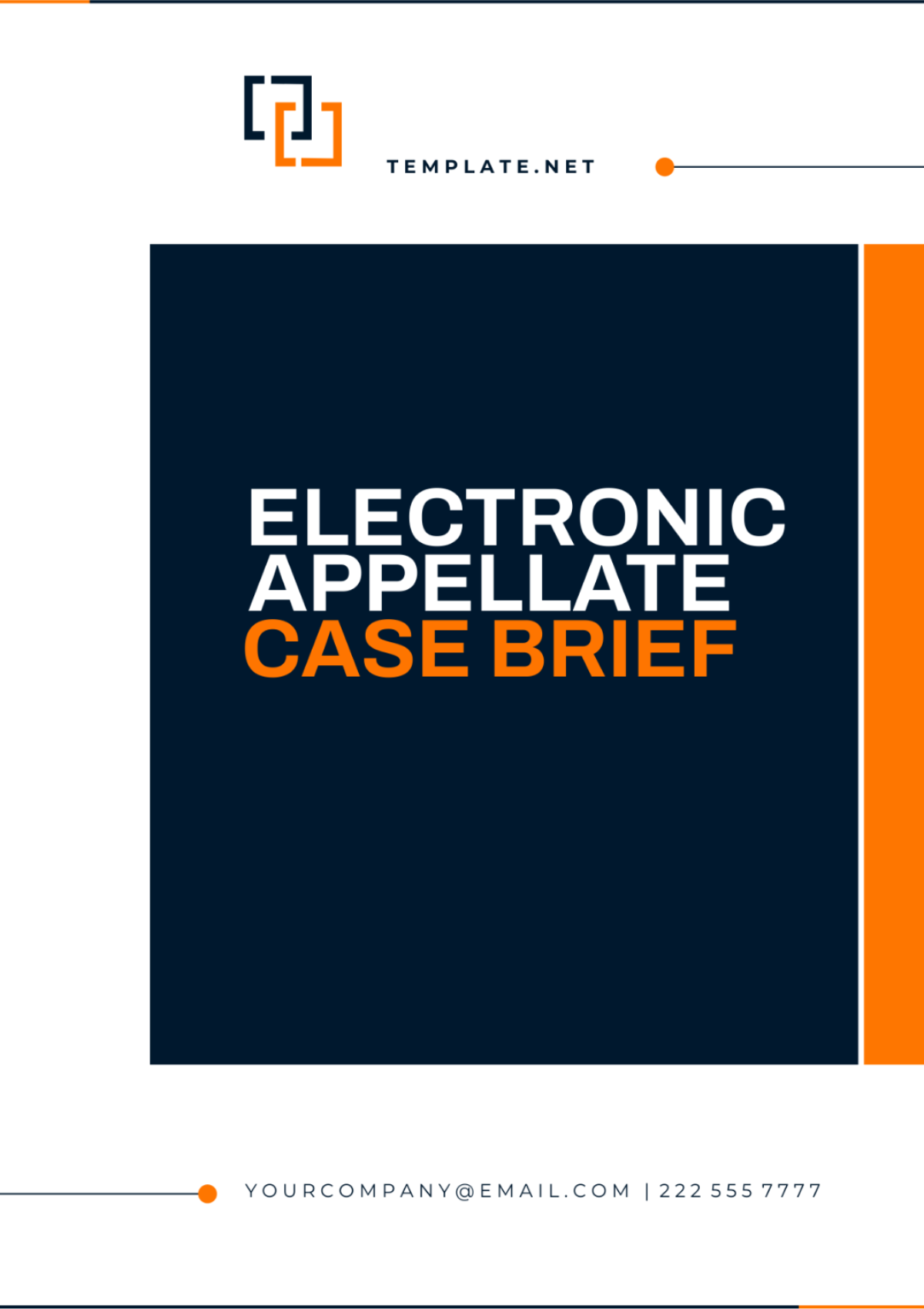
Electronic Appellate Case Brief
I. Case Information
Case Name: [Freedom v. Security]
Citation: [2058 U.S. 201 (Supreme Court 2058)]
Court: [United States Supreme Court]
Jurisdiction: [Federal]
II. Facts
The case of [Freedom v. Security] involves a challenge to a controversial government surveillance program.
[John Freedom] is a [civil liberties activist] who filed the lawsuit challenging the program's constitutionality.
[Government Security Agency] is the government agency responsible for implementing the program.
The dispute arose when [John Freedom] discovered his personal data was collected without his consent.
[John Freedom] argues that the surveillance program violates the Fourth Amendment.
[Government Security Agency] contends that the program is necessary for national security.
III. Procedural History
The case was initially heard in the [District Court] in [2056].
The lower court ruled in favor of the Government Security Agency], stating the program is constitutional.
[John Freedom] appealed the decision to the United States Supreme Court.
IV. Issues
Issue 1: Whether the surveillance program violates the Fourth Amendment.
Issue 2: Whether national security concerns justify the program's infringement on privacy rights.
V. Arguments
A.Arguments of the Appellant ([John Freedom])
[John Freedom] argues that the surveillance program constitutes unreasonable search and seizure.
He presents evidence showing the program's broad scope and lack of oversight.
B. Arguments of the Appellee ([Government Security Agency])
[Government Security Agency] asserts that the program is crucial for detecting and preventing terrorist activities.
They emphasize the necessity of gathering intelligence to safeguard national security.
VI. Court's Decision
The court ruled [5-4 in favor of John Freedom], declaring the surveillance program unconstitutional.
The majority opinion highlighted the importance of protecting individual privacy rights.
VII. Significance and Implications
The ruling in [Freedom v. Security] has significant implications for government surveillance practices.
It underscores the balance between national security and civil liberties.
VIII. Conclusion
In conclusion, the case of [Freedom v. Security] illustrates the ongoing debate over government surveillance and individual privacy.
[John Freedom] respectfully urges the United States Supreme Court to uphold privacy rights.
Respectfully submitted,
[Your Name]
[Your Email]
- 100% Customizable, free editor
- Access 1 Million+ Templates, photo’s & graphics
- Download or share as a template
- Click and replace photos, graphics, text, backgrounds
- Resize, crop, AI write & more
- Access advanced editor
Introducing the Electronic Appellate Case Brief Template from Template.net! Crafted for legal professionals, it offers an editable and customizable format for concise case summaries. Seamlessly edit using our AI Editor Tool for precision and efficiency in presenting complex legal arguments. Streamline your workflow with this essential tool.


